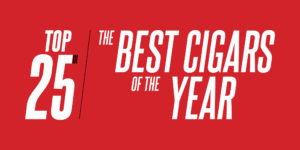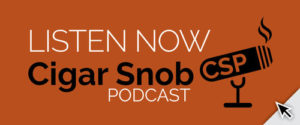When disaster strikes, cigar and spirit companies are among the first to lend a hand.
All Hands on Deck
It was a busy day on May 8 at the Sabor Havana cigar shop in Doral, Florida. Boxes of premium cigars were everywhere, but this day wasn’t just about lighting up. Clad in masks and gloves, employees weren’t ringing up sales or giving cigar recommendations. Instead, the shop offered thanks for area first responders and law enforcement as part of its First Responder Appreciation lunch and cigar event.
Visitors were treated to box lunches, refreshments, hand sanitizer, and complimentary cigars from Villiger Cigars. Shop co-owner Jorge Valdez saw it simply as a way to say thank you.
“It was fantastic,” he says. “We are being protected and cared for by our first responders. Firemen, military, policemen, and medical personnel are all customers of ours. We decided to go ahead and show them some appreciation. Some of the police officers and medical people have transported Coronavirus patients to hospitals.”
“I personally have been impacted by first responders when my mother had congestive heart failure and was transported to the hospital three weeks ago. To me, they are heroes. That’s one of the reasons we wanted to do this. Our relationship with this community at Doral is second to none. We wanted to give back.”
The get-together serves as just one example of cigar and spirits industry efforts to lend a hand during the Coronavirus pandemic. There has been no shortage of charity and relief. From donations to service to fundraisers, manufacturers and smokers themselves have been ready to play a role in the country’s recovery.
SMOKE SIGNALS OF RELIEF
Certainly Americans have faced frustration and economic hardships during the pandemic. For those in the Third World, shutdowns can exacerbate poverty even more. Alec Bradley Cigars founder Alan Rubin knew he had to help employees in Honduras. The company worked to secure basic staples like rice, beans, corn, cooking oil, sugar, and eggs for all employees at its cigar and box factories, farms, and a school for underprivileged kids the company supports.
“In developing countries like Honduras people don’t have savings accounts and checking accounts, so the money they make weekly goes to buy the necessities for them and their families,” Rubin says. “This is what we tried to take care of. There are also concerns about having the proper medical facilities and solutions to handle the Coronavirus if an outbreak should occur.”
About 700 families received packages within a week, and employees didn’t have to worry about whether their children would be fed.
“We were very pleased with the efforts of all of our friends and family in Honduras to help make this happen,” Rubin says. “I am sure there are many cigar companies throughout Central America and the Caribbean that have taken care of their people. We in the cigar business are a giving community and very philanthropic. I am proud to be a part of this wonderful industry.”
There have been times when I’ve ended up in tears because the parents are in tears. This is a lifeline for their kids.”
Alec Bradley wasn’t alone. Tabacalera USA, the company behind cigar brands like Romeo y Julieta, Montecristo, H. Upmann, and retail operations Casa de Montecristo and JR Cigar, donated $50,000 toward relief efforts in Broward County, Florida. Espinosa Cigars handed out food to first responders and others in Hialeah Gardens, Florida.
Oliva donated $100,000 in food, 20,000 masks, and 1,000 gallons of hand sanitizer to groups in the U.S. as well as Nicaragua and Sri Lanka.
“Everything ran smoothly with a slight delay in getting all the masks that we ordered,” director of marketing Ian Blanken says. “We have been fortunate enough to be able to help others during this pandemic.”
RESCUING RETAILERS AND EMPLOYEES
Beyond Coronavirus relief, manufacturers also worked to strengthen retailers as much as possible. Many of these small businesses faced weeks without opening. Some offered cigars to go, but revenue declines caused an economic sting.
J.C. Newman created a promotion called “Brick House At My House” to partner with retailers. This involved adding a store finder to the company’s website and changing display and banner ads across partner sites to direct users to the finder. Newsletters encouraged consumers to visit individual stores for curbside pickups. The deal included five Brick House cigars, two five-year aged teaser cigars, and a J.C. Newman lighter. To incentivize purchases, those who participated with their local retailers and posted pictures on social media were eligible to win prizes.
At the home office in Tampa, Florida, Newman also made logistical changes to meet CDC regulations and keep employees safe. Cigar production and shipping departments were split in half, with each group working on opposite and alternating days. The company has all employees using protective masks with hand-washing, disinfectant stations placed around the factory. Additional employees worked from home and everyone received a full paycheck without furloughs or layoffs. The entire setup was an example of how the industry reacted.
“The Newmans have always taken care of their employees because, as they’ve repeated, we are a family,” digital marketing coordinator Adria Rebbecchi says. “We hope this shows how much J.C. Newman cares not only for their family in their office in Tampa, but also for their family – their brick and mortar retailers – across the country.”
Other manufacturers helped shore up retailers as well. La Palina and Room 101 teamed up to create a virtual cigar lounge to help struggling brick and mortar cigar shops. Retailers sold a special care package to customers via social media or other means. The companies would then ship those to buyers with retailers receiving a big portion of the sale.
Dunbarton Tobacco & Trust, located in New Hampshire, never closed operations and was able to keep all employees. The company focused on promotions and sales efforts to meet retailer needs.
“We wanted to give our retailers as much as possible,” company co-founder Cindy Saka says. “Business has really picked up so we’re thankful for all our customers and retailers.”
Micallef Cigars also focused on helping retail partners and was able to keep all staff employed at current salaries. The company introduced the “Ultimate Inventory” benefit, allowing retailers to sell cigars and have them shipped directly to customers.
Other efforts included virtual events offering those in attendance the opportunity to win prizes. Many retailers reported profitable outings and one even said the event led to its secondhighest revenue month ever. Micallef’s “Phoenix” program provided retailers with flexibility and on-going discounts for the rest of the year. The marketing and sales team produced over 200 hours of content for customers, while also supporting retailers.
“Business as normal is now a road to failure,” Micallef President Dan Thompson says. “We are coming out of a very dark time where many businesses were forced to close or shrink their operation, and cash flow is tight for everyone. We don’t know what the rest of the year looks like. And if we feel this way, we can only imagine how much it has impacted retailers. So we scrapped the traditional show deals, and are offering retailers a personalized solution to help overcome problems this year. The response has been tremendous. Our retail partners appreciate a new approach and share our desire to build longterm sustainable businesses together.”
GOOD LIQUOR AND A GOOD CAUSE
Spirits companies were also quick to act. Dan Garrison, founder of Garrison Brothers Distillery, and business partner Rob Cordes acted quickly when Americans began contracting the virus. The company began producing hand sanitizer, but Garrison and Cordes wanted to do more.
The company worked with Team Rubicon in 2017 for Hurricane Harvey recovery efforts. The veterans group provides disaster relief and that now included the pandemic.
“We brainstormed about what could be done to raise money and awareness and at the same time, Garrison Brothers had plans to release a bourbon that had been eight years in the making, Laguna Madre,” Garrison says.
Those making a $1,000 donation received a bottle of Laguna Madre, the oldest bourbon Garrison Brothers has made to date with only about 2,000 bottles produced. The premium liquor was aged for four years in new white American oak barrels and aged four more years in French Limousin oak, prized for its vanilla content. Those who donated smaller amounts received some gifts from Garrison Brothers and the goal is to reach $2 million by August.
“The donation effort is going well,” Garrison says. “Team Rubicon is currently doing so much to help communities. We have distributed $100,000 toward their efforts so far and will distribute more again soon.”
Other companies have also mixed in relief efforts. Numerous distilleries across the country produced hand sanitizer for medical workers including Tito’s Vodka and Wildrye Distilling. Bacardi donated $3 million to food and beverage workers and parent company Patron also donated $1 million. Barefoot Wine made a $100,000 donation to Children of Restaurant Employees.
Aviation Gin, which is owned by actor Ryan Reynolds, began the #TipYourBartenders initiative with a $15,000 donation to the U.S. Bartenders Guild. The company added another 30 percent tip for every bottle sold through online partners.
HUMIDORS AND HELPING HANDS
Relief efforts have gone beyond traditional cigar and spirits companies. The Reno Cigar Lions Club is a unique organization in the “biggest little city in the world.” The group has been part of the 103-year-old international service club for a decade.
Unlike other affiliates, however, the Reno group has another element in common beyond service – a love of fine cigars. But this isn’t just a collection of stogie-puffing friends hanging out. The group, which includes about 30 members, takes its mission seriously.
“We like to help our community and have fun while we’re doing it, although these are pretty serious times,” club co-founder David Dehls says.
The club’s main focus is providing children in need with quality computer systems loaded with educational software. The “Computers 4 Kids Program” serves all grade levels and gives out computers once a month. However, with so many students needing computers for e-learning during the pandemic, that ramped up to a weekly basis. These Cigar Lions gave away 30 computers over Memorial Day weekend.
“I’ve never been blessed so many times in my life,” Dehls says. “There have been times when I’ve ended up in tears because the parents are in tears. This is a lifeline for their kids.”
Sean Chaffin is a freelance writer in Crandall, Texas. His work appears in numerous websites and publications. Follow him on Twitter @PokerTraditions or email him at [email protected] for story assignments.




